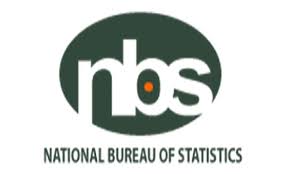The National Bureau of Statistic (NBS) has assured Nigerians of improved, accurate and comprehensive data on labour through its newly enhanced Nigeria Labour Force Survey, (NLFS).
Prince Adeyemi Adeniran, the Statistician-General of the Federation and Chief Executive Officer of NBS, gave the assurance on Saturday at the opening of eight days training of enumerators for the Nigeria Labour Force survey in Ibadan.
The News Agency of Nigeria (NAN) reports that the training organised by NBS, in collaboration with the World Bank, had enumerators from the six geopolitical zones of the federation in attendance.
According to Adeniran, the training is crucial, because after a long period of tireless work with the World Bank and other stakeholders on the revision to methodology of the NLFS, the exercise is set to commence.
He underscored the importance of the training to the exercise that was to be carried out and its impact on the government’s policies and implementation for national development.
“Amongst all the economic and socio-economic indicators published by the Bureau, the unemployment rate, which is the main indicator emanating from the NLFS, is probably one of the most-anticipated, most-widely understood and most-relatable indicators among the populace.
“Many might not easily grasp the concept of GDP growth, inflation rate or even poverty rate, or how the computation is done; but most, if not all, will understand the concept of unemployment and what a rise or fall in the rate means, because it is highly relatable to their daily lives.
“So, the NLFS is a very important and significant exercise for all our ardent users (government, policymakers, or researchers and the general public).
“Moreover, while this is one of the most critical and anticipated indicators on our data release calendar, any follower of our activities in the Bureau will know that the last LFS report to be published was for the reference period of fourth quarter of 2022, immediately after the easing of the COVID-19 lockdown, which produced a headline rate of 33.3 per cent,” Adeniran said.
He said the newly enhanced NLFS would address the rebuff that usually accompanied the release of the report.
Adeniran said the re-evaluation took care of the methodology used in line with international best practice and locally relevant.
He said that it also ensured a production process robust enough to produce estimates on a sustainable basis thereby avoiding periodic gaps.
“Also, it produces more labour market indicators and analysis that will inform the government about the employment and job situation in Nigeria.
“To this end, we have designed a new approach for the conduct of the NLFS survey in Nigeria.
“This new approach involves a 12 month-long method of data collection, with a streamlined workforce, manageable sample size and an enhanced quality assurance mechanism built into the process.
“The outcome of the review has brought about new additions to the instrument, capturing information on persons employed, but not at work, long-term unemployment, job satisfaction, discouraged job seekers and information on decent work, which is one the indicators of the SDG Goal eight,” Adeniran said.
Commenting, Jonathan Williams, a representative of the World Bank, said that many people around the world have collaborated on the project.
Williams said that the enhanced NLFS would capture concepts that had not been captured before and there would be checks and validations to ensure they are high quality.
On importance of the exercise, he said: “Labour survey is a big survey that NBS do and the work that you do is of importance to determine your welfare, income and other things.
“And so, we want to help people find good jobs that will lift them out of poverty, raise their incomes and harness their potential through data that are timely, accurate and reliable.” (
NAN


